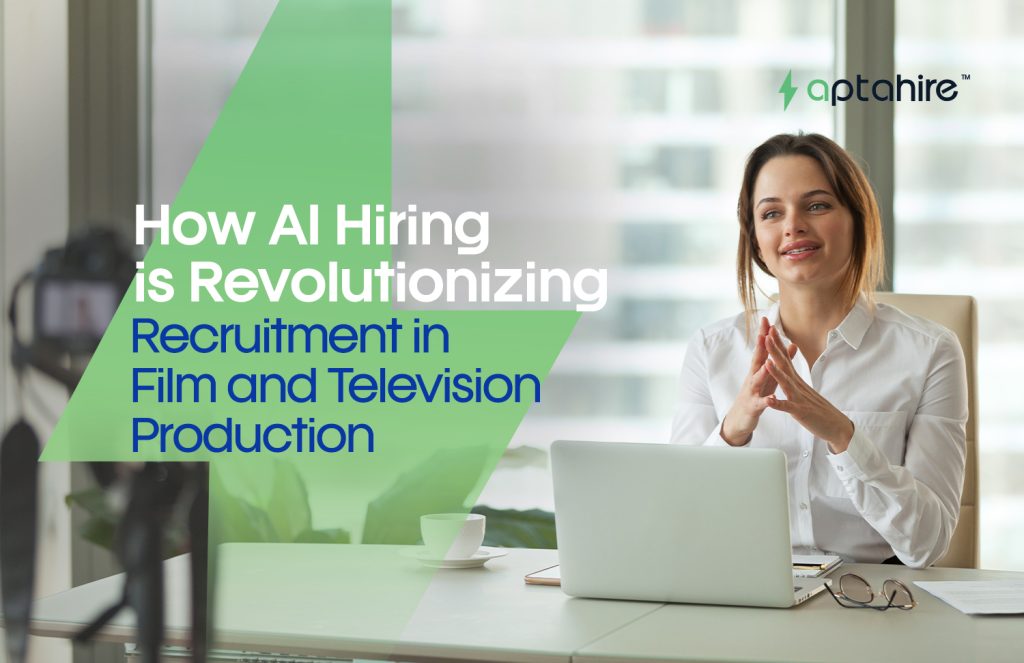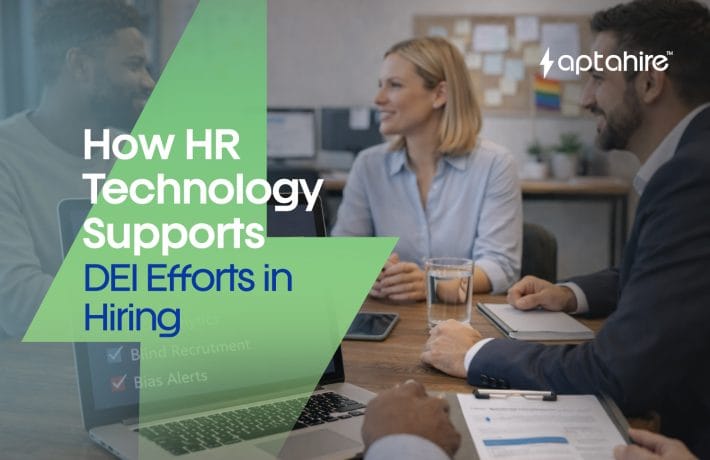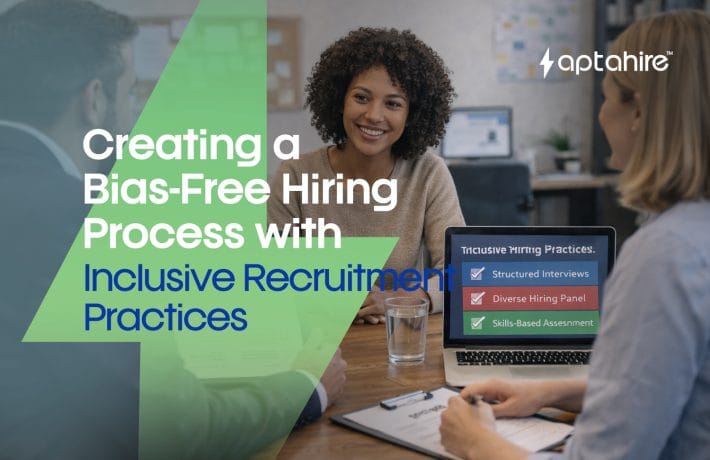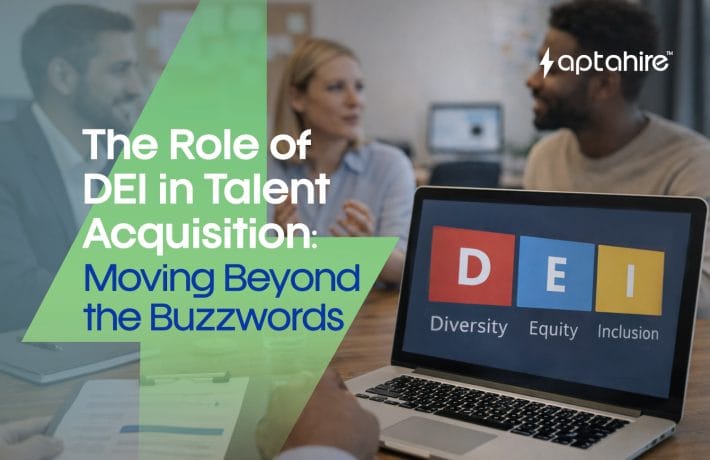How AI Hiring is Revolutionizing Recruitment in Film and Television Production

Lights. Camera. AI? Yep, you read that right.
The world of film and television, long powered by creativity, connections, and coffee-fueled casting calls, is getting a serious tech upgrade. And one of the biggest game-changers? Artificial Intelligence (AI) in hiring.
Whether it’s finding the perfect assistant director who can juggle chaos on set, a production manager with nerves of steel, or the right costume designer with a flair for period pieces, AI is making its way into the studios, casting offices, and production houses, helping creators build better teams faster.
Let’s explore how AI hiring is rewriting the script in entertainment recruitment.
Why Hiring in Entertainment Is So Tricky
Ask anyone in film or TV, and they’ll tell you: people are everything.
Production success often depends on a crew’s chemistry, reliability, and problem-solving under pressure. But traditionally, hiring in the industry has been:
- Based on word of mouth
- Rushed due to tight shooting schedules
- Prone to bias or favoritism
- Dependent on intuition rather than data
With hundreds of roles to fill, some technical, some creative, and many hybrid, it’s hard to find the right people without burning time and budget.
This is where AI steps in.
What Does AI Hiring Look Like in Film & TV?
Imagine a tool that:
- Scans thousands of applications in seconds
- Filters candidates based on role-specific skills (from cinematography to continuity supervision)
- Analyzes video auditions or interviews for tone, emotion, and professionalism
- Predicts job success based on previous experience and team fit
- Reduces unconscious bias by focusing purely on merit and role fit
That’s AI in action.
From pre-production hiring to post-production staffing, AI platforms are now helping directors, producers, and casting agents make faster, fairer, and more informed hiring decisions.
Key Roles AI Is Already Helping With
AI hiring tools are increasingly being used to streamline recruitment for roles like:
- Production Managers
- Assistant Directors (ADs)
- Location Scouts
- Casting Coordinators
- Set Designers & Art Directors
- Camera Operators & Editors
- Script Supervisors
- Makeup & Costume Designers
- Post-production Engineers
By analyzing a candidate’s past projects, availability, union status, and even collaborative behavior, AI can suggest the best-fit talent for each phase of production.
The Numbers Don’t Lie
Here are some eye-opening stats that show why this shift is happening:
- 68% of production delays are due to last-minute crew changes or mis-hires (Source: FilmLA Industry Report)
- AI reduces time-to-hire by over 50% by automating screening and scheduling (LinkedIn Talent Trends)
- A bad hire in a critical crew role can cost a production up to $20,000/day in lost time and reshoots (Source: Producers Guild of America)
- AI-based audition analysis tools like Flawless or HireVue have shown 30% better match rates in casting and crew coordination
Case Study: How a Streaming Giant Used AI to Staff a Limited Series
Let’s say hello to a fictional-but-inspired example based on real industry trends.
Case: “Midnight Town” – A 6-episode thriller for a major OTT platform
- The production company needed 65+ crew members, most of them within 30 days.
- Using an AI-powered hiring tool integrated with production management software, they:
- Filtered available candidates based on union affiliation, skillset, and past genre-specific experience
- Used video analysis to evaluate soft skills in department head interviews (like calmness under pressure)
- Identified the best assistant directors by cross-matching resumes with past production schedules and delivery efficiency
Result? The team was hired in just 17 days, came in under budget, and had zero mid-production replacements.
That’s what smart staffing looks like.
But What About Creativity? Can AI Understand That?
Great question. While AI doesn’t “get” creativity the way humans do, it helps in identifying patterns that lead to creative success.
For example:
- Matching a costume designer to a director with a specific visual aesthetic
- Spotting an editor whose pacing style suits a particular genre
- Recommending crew members who’ve worked well together in the past to improve team chemistry
It’s not about removing human choice, it’s about enhancing it with data-backed insights.
Addressing the Concerns: Is AI Replacing Jobs?
Absolutely not.
AI is not replacing filmmakers or casting agents. It’s simply making their jobs easier.
Think of it like a production assistant who never sleeps, never forgets, and has access to every resume, demo reel, and crew availability calendar imaginable.
Also, responsible AI hiring tools are built to support diversity, fairness, and inclusion, by flagging biases, anonymizing initial evaluations, and focusing on skills, not stereotypes.
The Future: AI + Human Intuition = Creative Gold
Imagine this:
A director dreams up a bold new project. In minutes, an AI platform suggests:
- A shortlist of cinematographers who excel in moody, low-light shooting
- Production managers with experience in remote, high-altitude shoots
- Sound designers who specialize in suspense and psychological thrillers
That’s the future of hiring in film and TV; faster, smarter, more creative, and more inclusive.
And we’re already living it.
Final Takeaway: It’s Time to Rethink the Hiring Reel
In an industry where deadlines are tight, budgets are stretched, and talent makes or breaks a show, AI hiring is the tool the entertainment world didn’t know it needed.
It doesn’t steal the spotlight, it makes sure the right people are standing in it.
So whether you’re a line producer juggling ten projects or a casting director scouting fresh faces, it’s time to embrace the shift.
Because in today’s world of content overload and OTT competition, the best productions begin with the best teams, and AI is helping find them, faster than ever before.
Ready for a smarter casting call? The future is already rolling.
FAQs
1. How is AI used in hiring for film and television production?
AI is used to automate resume screening, analyze video auditions or interviews, evaluate technical and soft skills, and match candidates to roles like crew members, editors, and assistant directors based on data-driven insights.
2. Can AI help in casting and creative hiring decisions?
Yes. AI tools can analyze audition tapes using facial recognition, voice modulation, and emotion tracking to identify actors who best fit character requirements. It also supports casting decisions by comparing profiles with past successful roles.
3. What types of roles in production benefit most from AI hiring?
AI is highly effective in hiring for roles like production managers, assistant directors, cinematographers, costume designers, editors, VFX artists, and even casting assistants, especially when time and team coordination are critical.
4. Does AI reduce bias in entertainment hiring?
Yes. AI tools anonymize candidate data during the early evaluation stages, focusing solely on skills, experience, and performance, helping reduce unconscious bias often present in manual hiring processes.
5. How does AI speed up the recruitment process in the entertainment industry?
AI can screen hundreds of applications in minutes, automate interview scheduling, assess candidates through video analysis, and prioritize top talent, cutting hiring time by over 50%.
6. Is AI capable of understanding creative compatibility or team chemistry?
While AI doesn’t “feel” chemistry, it can identify patterns based on previous collaborations, shared genres, and personality assessments, suggesting teams likely to work well together based on past data.
7. Do major studios and streaming platforms already use AI in hiring?
Yes. Studios and platforms like Netflix, Amazon Studios, and major production houses use AI tools for staffing, casting, and crew sourcing, especially in high-volume productions with tight timelines.
8. Can AI help freelancers in film and TV get hired more easily?
Absolutely. Freelancers can benefit from AI platforms that match them to available roles based on their portfolios, availability, and skillsets, helping them access opportunities they might otherwise miss.
9. Is AI hiring affordable for indie filmmakers or small production teams?
Many AI hiring tools offer scalable solutions that can be cost-effective for independent creators, saving time and reducing the risk of hiring mismatches that could cost more during production.
10. Will AI replace human casting directors or production managers?
No. AI supports human professionals by handling repetitive, data-heavy tasks. Final decisions still rely on human judgment, experience, and creative vision. AI is a tool, not a replacement.



